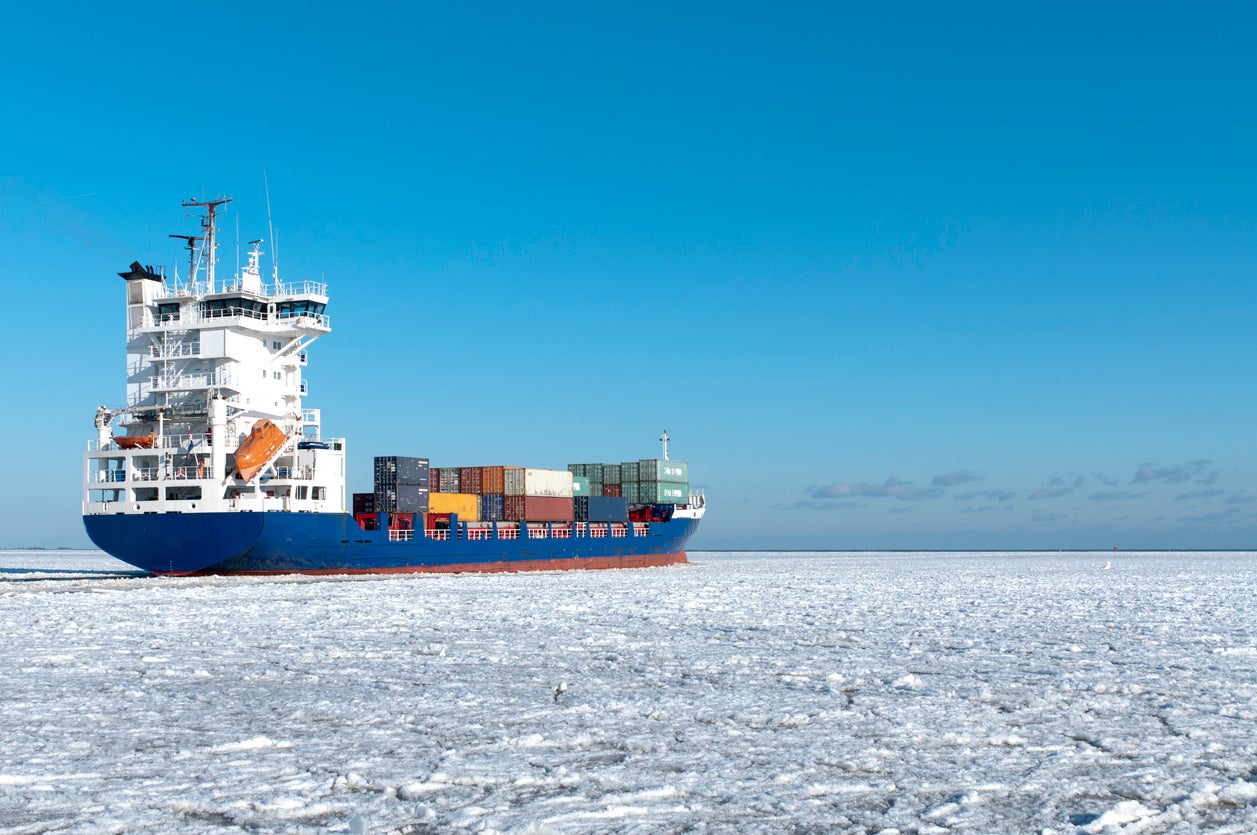Several ships trapped in ice after Arctic sea freezes early near Russia
Moscow has dispatched two icebreakers to free the ships, which include two oil tankers and cargo boats

Your support helps us to tell the story
This election is still a dead heat, according to most polls. In a fight with such wafer-thin margins, we need reporters on the ground talking to the people Trump and Harris are courting. Your support allows us to keep sending journalists to the story.
The Independent is trusted by 27 million Americans from across the entire political spectrum every month. Unlike many other quality news outlets, we choose not to lock you out of our reporting and analysis with paywalls. But quality journalism must still be paid for.
Help us keep bring these critical stories to light. Your support makes all the difference.
An early and unexpected freeze has trapped at least 18 cargo ships in the Arctic Sea off the coast of Russia.
Ice up to 30cm thick has formed across most of the Laptev Sea and East Siberian seas, according to the Barents Sea Observer, a Norwegian news site.
In years gone by, warmer weather caused by climate change has allowed vessels to cross parts of Russia's northern sea route in November without incident.
Shipping companies caught unaware by the early freeze may now have to wait days for ice breakers to reach their vessels.
They are blaming an inaccurate weather forecast by Russia's Met Office for the incident.
Viktor Gil, captain of The Mikhail Somov, one of the ships stranded along the route said that the situation was “quite dire”.
He added that crew had enough supplies to last until an ice-breaker reaches them in around a week.
Alexei Likhachyov, director-general of Russia’s state-owned nuclear energy company Rosatom, which manages the country’s nuclear-power fleet of ice-breakers, said on Monday that the ships included vessels sailing under the flags of Hong Kong and Marshall Islands.
That the boats have become stranded in five separate locations is likely to raise alarm in Moscow.
The Kremlin has previously invested huge sums into the northern sea route as climate change opens up routes between Europe and Asia.
The route, which covers thousands of miles along Russia's Arctic coastline, can cut almost around 14 days off a journey from Hamburg in Germany to Tokyo via the Suez Canal in Egypt.
A Russia-owned tanker, the Christophe de Margerie, became the first vessel to travel the northern sea route without the help of icebreaking boats.
Cargo volumes on the route have increased by around tenfold over the past decade, reaching an estimated 32 million tonnes last year.
President Putin has previously said he wants that figure to nearly triple by 2024.
Officials in Russia have dispatched two icebreakers to free the stranded ships, which include two oil tankers and cargo ships. Authorities said they hoped to free the boats by next month.
The sea freeze over happened despite temperatures in October recorded at up to 4C warmer than is usual for Russia's Arctic coast.
Subscribe to Independent Premium to bookmark this article
Want to bookmark your favourite articles and stories to read or reference later? Start your Independent Premium subscription today.



Join our commenting forum
Join thought-provoking conversations, follow other Independent readers and see their replies
Comments